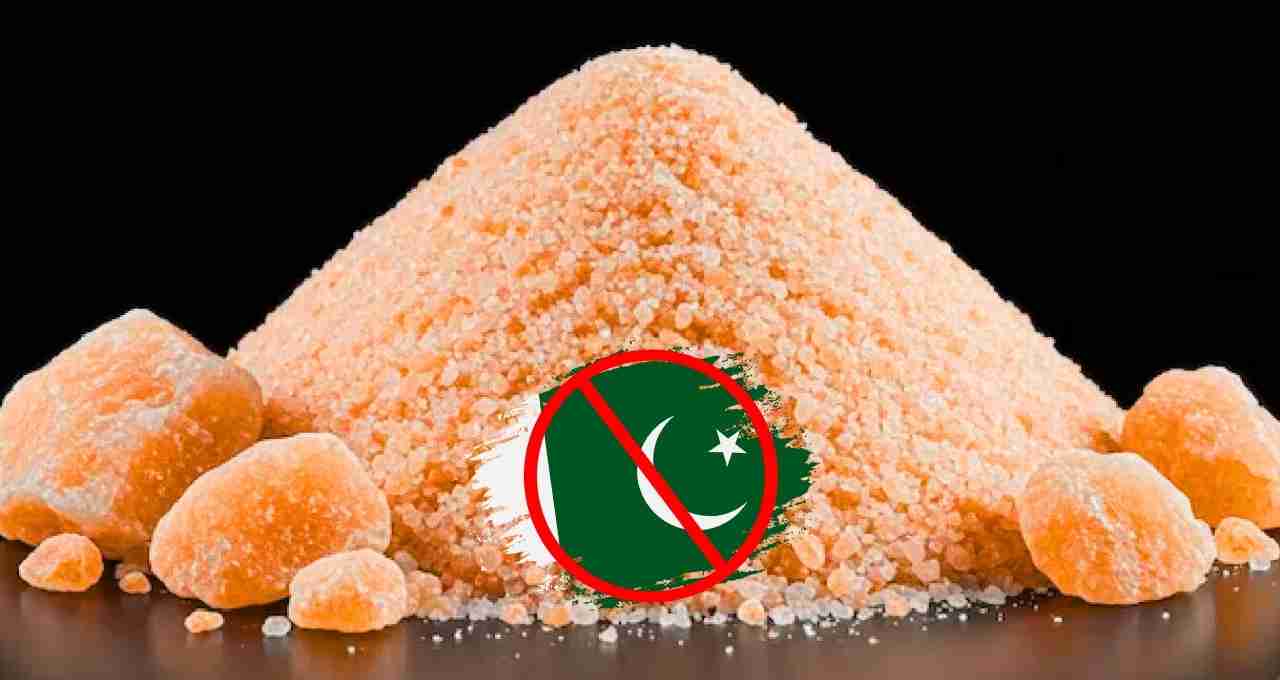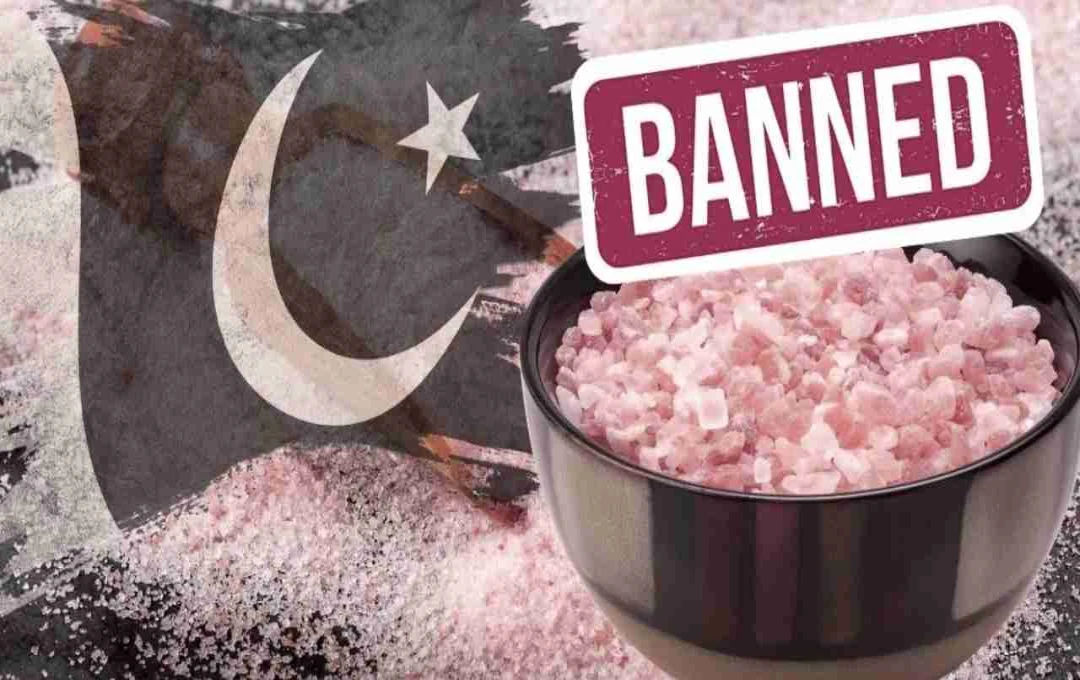India's ban on Himalayan pink salt imports from Pakistan has directly impacted Pakistan's business community.
Pakistan Salt: The recent deterioration in trade relations between India and Pakistan is significantly impacting Pakistan's Himalayan pink salt (Sendha Namak) trade. Following a terrorist attack in Pahalgam, Jammu and Kashmir, India decided to cease all trade relations with Pakistan. This directly affected Pakistani businesses that had long relied on the Indian market, primarily for exporting Himalayan pink salt.
Khewra Mines and Pakistan's Salt Empire
The Khewra mines in Punjab, Pakistan, are among the world's oldest and largest rock salt mines. Millions of tons of salt are extracted and exported annually. The region boasts over 30 salt processing units, employing thousands.
In 2024, Pakistan exported approximately 350,000 tons of rock salt, valued at an estimated $120 million. India was the largest importer. However, following the April 2025 terrorist attack, the Indian government imposed a complete trade embargo on Pakistan, including a ban on rock salt imports.
Impact on Retail Markets and Price Increases in India

In India, Himalayan pink salt is widely used in religious ceremonies, fasting rituals, and traditional medicine. The import ban has significantly impacted the retail market. Salt that previously cost ₹45-50 per kilogram now sells for ₹70-80.
Indian businesses are now developing domestic alternatives to reduce reliance on imports. Simultaneously, the Indian government is working on new policies to encourage the domestic salt industry.
Pakistan's Salt Traders Face Hardship
Pakistan's salt businesses, heavily dependent on the Indian market, are struggling. Khewra traders report that the loss of a stable and reliable customer like India has affected both production and exports.
Mansoor Ahmed, Senior Director of Ghani International, stated that the trade halt with India has led to massive stockpiles and difficulties in finding new customers. Large processing units have reduced production, and layoffs have begun in some areas.
China as a New Customer, but Trade Remains Uncertain
Some relief arrived when Pakistan exported 136.4 million kilograms of rock salt to China in the first quarter, valued at approximately $1.83 million.
However, experts believe this Chinese order is not sustainable. China is a major salt producer with limited domestic demand, making long-term reliance on Pakistani imports unlikely.
Shehzad Javed, CEO of Ittefaq Companies, claims that while Chinese orders have increased, profits are lower than those from India. Logistical complexities and tax structures also hinder trade.
Difficulties in Accessing Other Global Markets

Pakistan plans to increase rock salt exports to countries like the USA, Vietnam, Malaysia, Australia, Turkey, Italy, the UK, Japan, and Russia. However, this is challenging.
Each country has different import regulations, tax structures, and stringent quality standards. Existing suppliers in many markets make it difficult for Pakistan to gain a foothold.
Businesses Suffer Losses, Units Face Closure
Saima Akhtar, President of the Pakistan Salt Manufacturers Association, stated that losing the Indian market is a significant setback. India's large population, high demand during religious festivals, and consistent buyers provided stable income.
Many Khewra units are now on the verge of closure. Small businesses are drowning in debt, and hundreds of workers face unemployment.
Lack of Support from the Pakistani Government
Amidst growing economic challenges, the Pakistani government has yet to offer substantial relief. Salt industry stakeholders demand subsidies, tax breaks, and assistance in finding new markets.
They also urge the government to engage with potential customers through international trade fairs and diplomatic channels. However, political instability and limited resources hinder these efforts.
An Opportunity for India's Self-Reliance
In India, this decision is linked to the "Atmanirbhar Bharat" (Self-Reliant India) campaign. Experts believe India can strengthen its salt sector by boosting domestic Himalayan pink salt production. States like Rajasthan, Gujarat, and Uttarakhand already have existing salt resources that need to be expanded.













